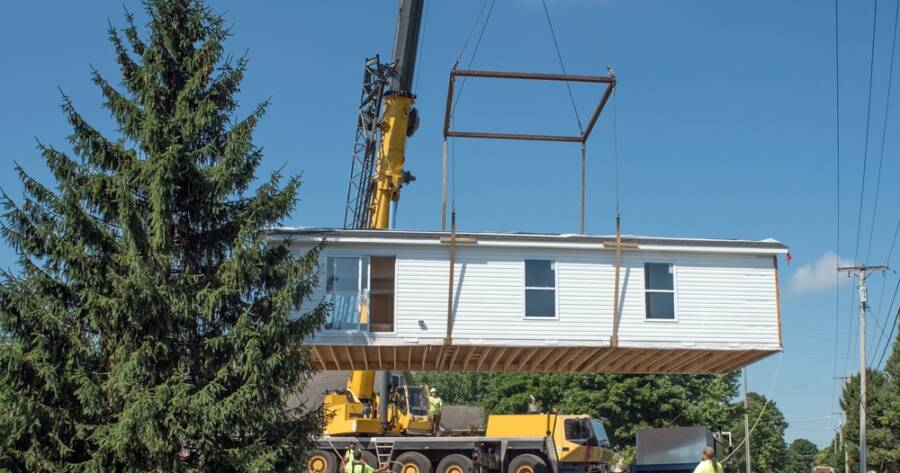Modular homes have evolved significantly and are set to become even more attractive in 2025, offering a blend of efficiency, customization, and affordability. These homes are built off-site and assembled on location, allowing for faster construction and lower costs compared to traditional builds. With advancements in sustainable practices and cutting-edge designs, modular homes present a compelling investment opportunity for those seeking modern, cost-effective, and eco-friendly living solutions tailored to individual preferences.
What Are Modular Homes?
Modular homes are prefabricated structures constructed in sections at a factory and then transported to a permanent site for assembly. Unlike traditional homes built entirely on-site, modular homes are assembled using pre-made modules, which are manufactured under strict quality control in a controlled environment.
These homes comply with the same local building codes as site-built homes and offer a variety of customization options, from layout and finishes to energy-efficient upgrades. The factory-based construction process allows for faster build times and often results in fewer delays due to weather or other on-site challenges. Modular homes can vary in size and style, making them adaptable for both single-family residences and larger, multi-story buildings, providing flexibility for diverse homeowner needs.
Manufactured or Modular Home – What’s the Difference?
Understanding the difference between manufactured and modular homes is essential when considering a housing investment. While both are types of prefabricated homes, manufactured homes are built to a different standard—specifically, the federal HUD Code—rather than the local building codes that modular homes must meet.
Manufactured homes are typically constructed on a permanent steel chassis and can be relocated, whereas modular homes are placed on a permanent foundation and are designed to remain in one location, similar to traditional houses. The construction quality, financing options, and potential resale value of modular homes are often more favorable due to their adherence to local regulations. This distinction positions modular homes as a solid long-term investment, akin to site-built homes.
Why Modular Homes Are a Smart Investment in 2025
Modular homes are poised to be a smart investment in 2025 due to their affordability, speed of construction, and sustainability features. The streamlined factory production process reduces labor costs and material waste, making modular homes more cost-effective than traditional builds. With housing prices rising, modular homes present an attractive solution for buyers seeking modern, efficient living spaces at a lower price point.
Advancements in design and construction technology have also improved their energy efficiency, which can reduce utility costs and align with growing environmental consciousness. Furthermore, modular homes typically appreciate in value over time, especially when built in desirable locations and customized with high-quality materials, making them a strong option for long-term investment.
Customization and Future Trends for Modular Homes
One of the major advantages of modular homes is the ability to customize the design according to individual preferences. Homeowners can choose from a variety of layouts, finishes, and eco-friendly upgrades that cater to modern lifestyles.
In 2025, modular home trends are expected to incorporate more smart home technology and sustainable building practices, including solar panel integrations and energy-efficient insulation. These advancements not only enhance comfort but also contribute to long-term savings and reduced carbon footprints.
As the demand for affordable, flexible housing continues to rise, modular homes are set to incorporate more innovative features that cater to changing consumer needs and preferences. This adaptability makes modular homes an appealing and future-proof housing choice.
Learn More About Modular Homes
Modular homes offer a unique blend of affordability, quality, and customization that make them an attractive option for modern homebuyers. With advancements in design, sustainability, and energy efficiency, they are positioned as a smart investment for 2025 and beyond.
Understanding the differences between modular and manufactured homes, along with the benefits they provide, helps in making informed decisions about this type of housing. Explore modular homes to find an adaptable and future-proof solution that fits your lifestyle and budget.
